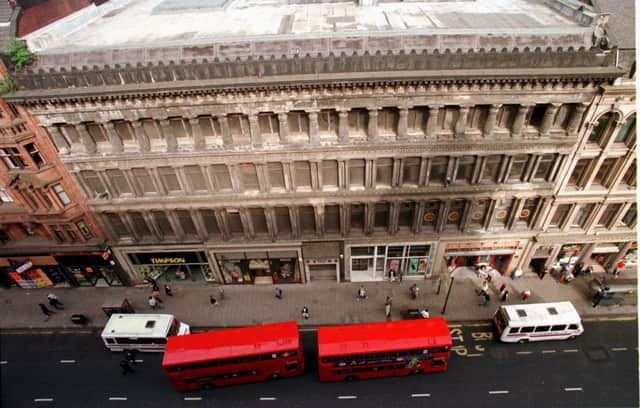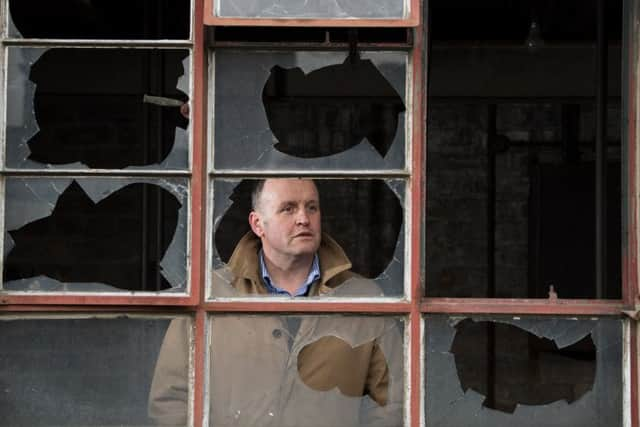Owner of crumbling '˜Greek' Thomson masterpiece blames Glasgow council


Developer Derek Souter has called for urgent action to rescue the decaying masterpiece and is seeking a review of a 20-year-old decision by Glasgow City Council which he claims has imperilled the structure.
For two decades Souter and his fellow investors Duncan Souter and Kelvin Kerr have been frustrated in their plans to convert the beautifully decorated building on Union Street, Glasgow, into a four-star hotel and shops.
Advertisement
Hide AdAdvertisement
Hide AdTheir vision for a £50 million development would link the Egyptian Halls to another architectural gem – the Lighthouse, which was designed by another world famous Glaswegian, Charles Rennie Mackintosh.


Souter, however, claims their ambitious proposal has been thwarted by a decision taken by Glasgow City Council without his knowledge, which changed the terms of the way ownership was transferred to his companies, Union Street Properties and Union Street Investments.
In February 1996 the city council imposed a compulsory purchase order (CPO) with a view to saving the building.
Souter’s companies agreed to take over the building in 1999, but unbeknown to them or their legal team the terms of the CPO had changed.
The CPO was amended in 1998 before Souter became involved and the change was not disclosed to him or his lawyers until much later.


The change meant the title for the building could not be switched to Souter’s companies until compensation had been agreed with the previous owners – a company called Paratus.
According to Souter, the legally irreversible amendment led to Paratus claiming for £2 million compensation, which led to a lengthy legal process that delayed the transfer of title and, in turn, led to the project being held up for years. Eventually Paratus were awarded £26,000.
In the early 2000s the problems were brought to the attention of then First Minister Jack McConnell, who demanded an explanation for the delay.
Advertisement
Hide AdAdvertisement
Hide AdIn the meantime, the building, which was completed in 1872, has lain vacant and property values on Union Street have fallen. Souter says the cost of preserving Egyptian Halls would now be £18 million.
He claims he has been “duped” by the council and now wants it to acknowledge the amended CPO has stalled the project and recognise that this is an “extraordinary project that requires extraordinary funding”.
Souter said: “This could bring hundreds of jobs to Glasgow, millions in business rates and huge economic regeneration to an area of the city centre which badly needs it. The worst case scenario is that Scotland loses an architectural masterpiece that it should have saved if it had joined-up government and honesty.”
A city council spokesman said: “These allegations in respect of misrepresentation and impropriety by the council are entirely refuted. The true position has been set out in detail on many occasions by the council, and it may be better – rather than returning to issues from the late 1990s – that the building owners join with us in a co-operative manner to ensure the preservation and regeneration of this historic building.”